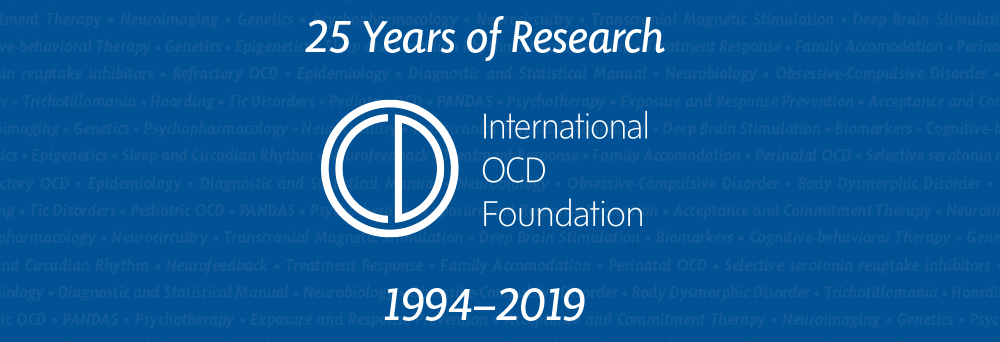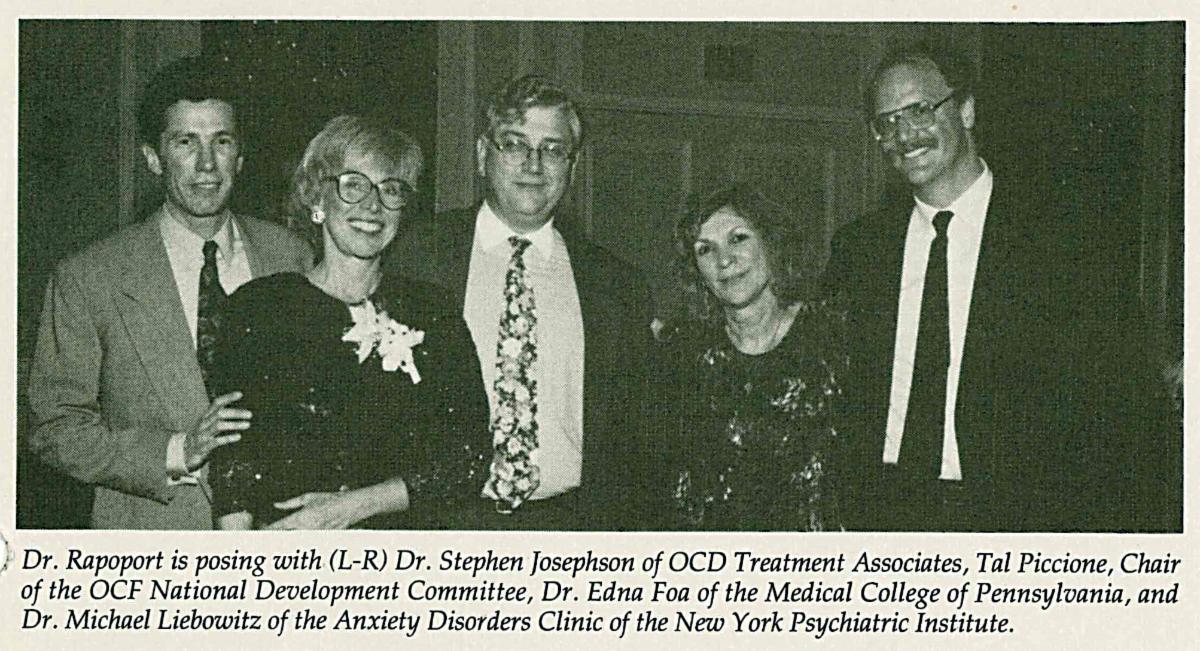Over the last 25 years, donors like you have made it possible for the IOCDF to award 116 research grants totaling $5.9 million.
Thanks to these funds, researchers have advanced scientific understanding of OCD and related disorders, improved treatment, and discovered new treatments. The impact the fund has made, and continues to make, on the lives of those affected by OCD is immeasurable.
- Dan Geller, MD, at Massachusetts General Hospital, received a $30,000 grant in 1998 to study comorbid OCD and tics. He found that patients with both OCD and tics need a combination of medications to be treated effectively. Since then, he has conducted extensive clinical trials for OCD, Tourette, ADHD, Depression, and CBT, and his work has been cited more than 3,000 times in the literature by other researchers.
- Catherine Ayers, PhD, at the University of California, San Diego, received a $39,000 grant from the IOCDF in 2008 to study late-life hoarding. She found that existing gold-standard CBT for hoarding was not effective in treating late-life hoarding. She’s since developed a hoarding treatment manual and a community program.
- Jamie Feusner, MD, at the University of California, Los Angeles, received a $47,000 grant from the IOCDF in 2007 to study visual processing in BDD. His research revealed that people with BDD literally see the world differently than others. This discovery informed how we currently treat BDD.
- Jon Abramowitz, PhD, at the University of North Carolina – Chapel Hill, received a $25,000 grant in 2008 to study the role of intimate partners in exposure and response prevention (ERP) therapy. He developed a treatment manual for involving partners in ERP, and found through a clinical trial that treatment gains were maintained over the long-term with this approach.
...But there’s still more work to be done. Your donation to the research grant program could fund the next breakthrough in OCD research, helping those affected by OCD get the help they need to live fulfilling lives.




I appreciate the research on OCD et al., but there needs to be more pragmatic (and affordable) treatment programs – with ,long term plans including residential and step down procedures and assimilation into “normal” society . This needs to recognize the individual issues of patients.
I agree. My insurance won’t pay for me to get the treatment which is ERP that I so desperately need to try to overcome my germs/contamination OCD. I have basically lost hope that the system of mental health only helps those who have or come from alot of money. Everyone else is left out. This is what will make or break a person who is struggling with OCD. I am so close to getting better too and that is the sad part to know that getting treatment will save my life!
Hi Sheyonia, thank you for sharing, and I’m so sorry to hear about your struggles. Please contact our resource specialist at info@iocdf.org so she can help you find support.
The research in finding causes and treatment are exciting, but the reality is that still many people are not getting the right help and continue to deteriorate and be paralyzed by the condition. This is a daily experience with us?